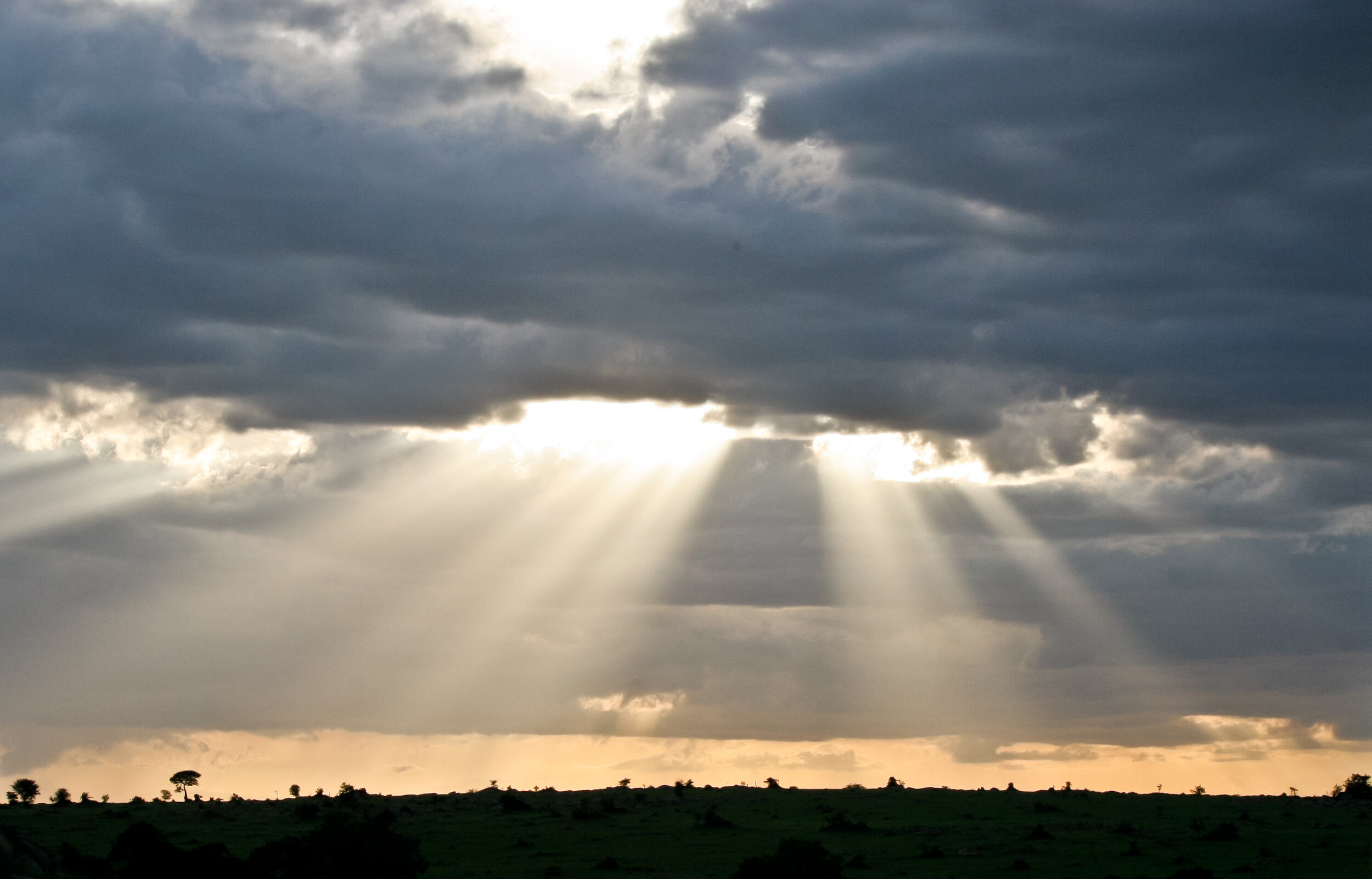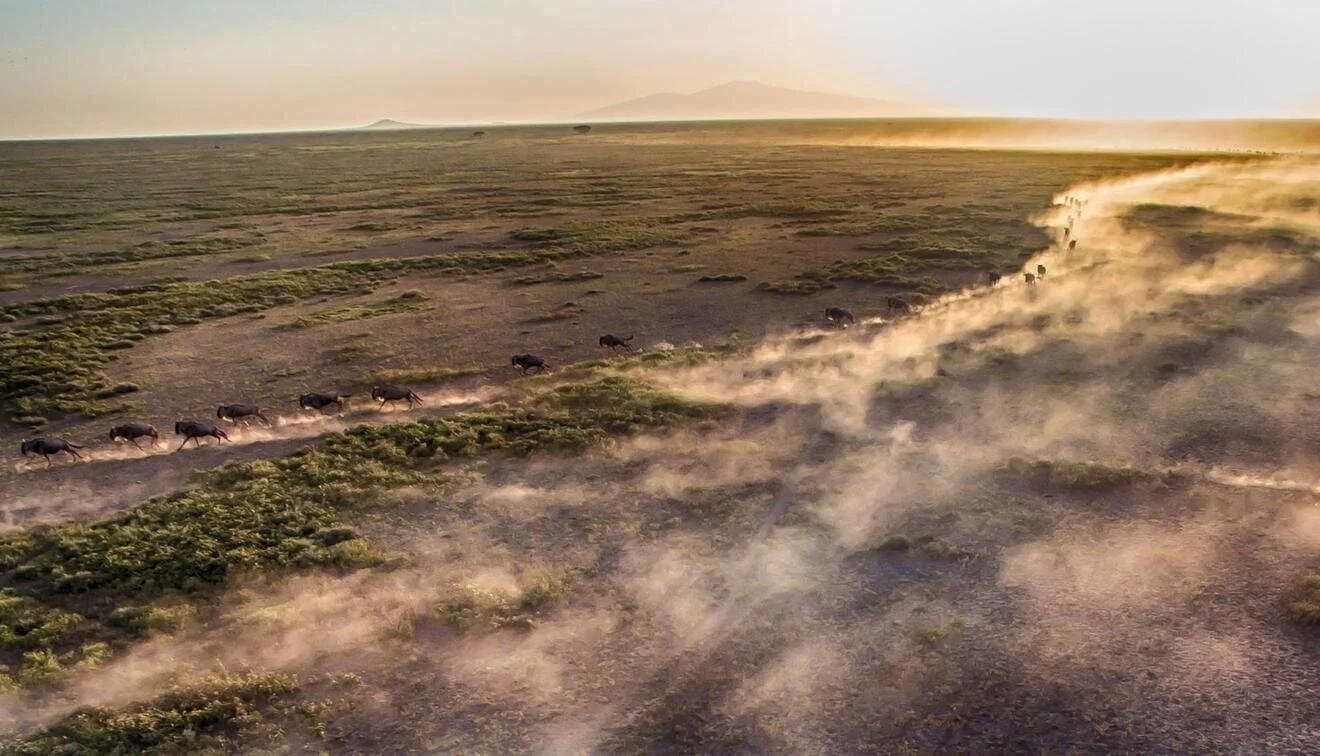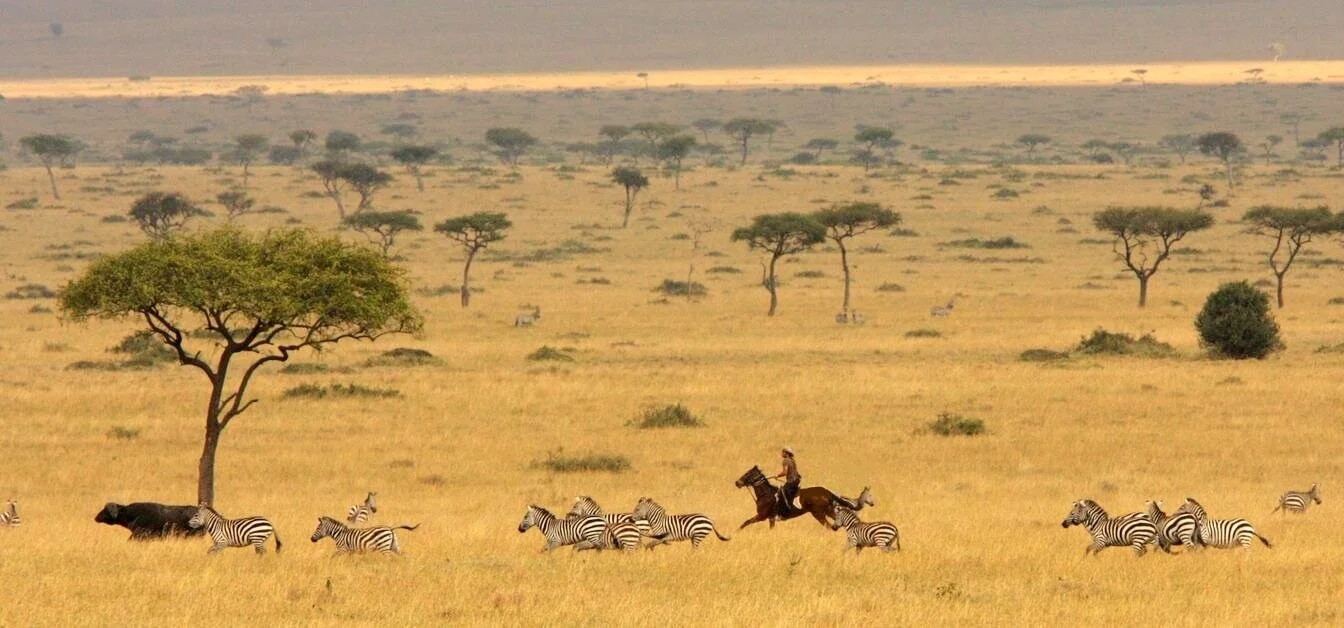The Crossing
witness one of the world’s most dramatic natural events in close proximity
— Crossing —
the Mighty Mara River
“Snaking across the northern tip of the Serengeti National Park, the Mara River flows between Kenya and Tanzania, and is the site of one of the most dramatic events of the annual Great Migration, when millions of zebra, antelope and wildebeest migrate north across the Serengeti in search of food. Each year, countless herds of wildebeest will charge north across the Mara en route to the Lamai Triangle watershed, the last stop before reaching their final destination of the Maasai Mara’s green plains in Kenya. The Triangle is remarkably lush and green year round, and is a critical refuge for the migrating wildlife during the dry season. The crossing is a spectacular site to behold, but the Migration is not the only time of year for remarkable wildlife viewing. The Mara’s fertile banks are home to a astonishing community of resident species, from bathing hippos to crocodiles that skulk below the murky waters, from buffalo and giraffe that graze along the flood plains to lions and other big cat predators who roam the park freely. The Tanzanian side of the river in particular is mostly devoid of crowds, and offers an outstanding opportunity to observe the animals much more intimately and witness one of the world’s most dramatic natural events in close proximity: it truly is the Africa one sees in documentary films.”
WHAT WE LOVE
The Great Migration
The chance to watch the annual wildebeest crossing first hand is truly jaw-dropping, and doing so from the Tanzanian side of the Mara River is still considered one of Africa’s best-kept secrets. The wildebeest risk their lives by crossing the crocodile-infested waters, and many do not survive the journey. Many lodges offer drives or walking safaris along the river’s banks that allow travelers to observe this event from a close—yet safe—vantage point, and if you are lucky you may have the chance to see the awesome power of the African crocodile as it emerges from below during the crossing to attack its unsuspecting prey.
Safari in the Lamai Triangle
This beautiful, 98,000 acre area of lush grassland, rolling hills and tree-lined waterways is the hub of the Serengeti migration, and one of the best places in the area to observe wildlife on a more intimate level. While the Triangle is crowded with migrating species during the dry season—more than one million wildebeest alone make the journey—the area remains green and populated by wildlife year-round, and offers the perfect terrain for off-road game drives, where you can take a thrilling ride in the open, absorbing sights of amazing wildlife and gorgeous landscape in the hands of an expert driver and guide.
Sightings in the Wild
The river crossing is not the only spectacle worth witnessing. Scores of native species populate the plains around the Mara—including resident game like zebra, impala, gazelles and giraffe—and are well worth viewing on their own. Many of Africa's most impressive predators like lions, leopards and hyenas also roam the plains year-round, and safari goers have an excellent chance of seeing a kill in action.
Spot a Black Rhino
The Mara River/Lamai Triangle region also includes a handful of the elusive Black Rhino, one of the most critically endangered species on the planet. The global population of Black Rhinos now stands at less than 5,000, and if you’re lucky you will catch a glimpse of this magnificent creature as it freely roams this ancient landscape.
REST & REJUVENATE
Lodges and camps on this trip look out onto pristine African landscapes and offer—at the right time of year—unobstructed views of the Migration and Mara River Crossing itself. The never-ending African skies dip right into the lush Serengeti plains, making your temporary backyard one of the most astonishing sights in all of Africa.
Lamai Serengeti
Only a few miles from the Mara River, tucked among kopjes (hills) with sweeping views of the plains, the Lamai Serengeti sits in the midst of some of Africa’s most dramatic scenery. The two lodges were designed with bright lighting and open spaces to emphasize the gorgeous backdrop. All of the rooms face the plains and have a private veranda on which to relax and enjoy the gorgeous surroundings, and observe some of the resident plains game—zebra, antelopes and giraffe—that live in the region year round.
Singita Mara River Tented Camp
A small and intimate retreat, Singita Mara River camp is an oasis of casual elegance and relaxed bohemian glamour. The camp’s location in the Lamai Triangle, right on the northern banks of the Mara River, affords prime viewing of the wildebeest crossing. Guests are also likely to spot big cats and elephant that roam the region year round, as well as hippos and crocodile that permanently populate the river. Singita Mara River also operates entirely off the grid, and is powered by a custom designed solar system.
Sayari Camp
Located in an unspoilt northern corner of the Tanzania, surrounded by some of the most stunning landscapes in all of Africa, Sayari Camp is one of the Serengeti’s best-kept secrets. The area around the camp is quite lush and rich with game viewing, along with over 500 species of indigenous birdlife. Sayari Camp features 15 elegant hillside suites, each with unique interiors inspired by the clean lines of the Serengeti, and each offering panoramic views of the beautiful vast plains that lay outside.
Serengeti Bushtops Camp
This secluded lodge lies in the northwestern Serengeti directly in the path of the wildebeest migration, and features 14 incredibly spacious guest tents, each with a private viewing balcony. The camp’s remote location right in the middle of the Migration’s ecosystem allows its guests the opportunity to do more than just observe the procession—they become direct participants in one of the world’s most dramatic natural events. Accommodating such a small number of guests also allows Serengeti Bushtops the luxury of paying attention to the tiniest details that make a trip truly unforgettable.
WHAT TO KNOW
The Great Migration takes place in this area each year from July through early November.
The height of the Mara River Crossing happens between July and September, and the Lamai Wedge is filled with wildlife from July through late October.
The area is also well worth a visit during non-Migration months to interact with the abundant resident wildlife in romantic seclusion. Most lodges however are closed during the long rains of April and May.
The Tanzanian side of the river has one-tenth the number of hotel rooms as the Kenyan side, and you will encounter far fewer cars on safari. Apart from some truly mobile tented camps, all lodges lean towards the luxury end.
MORE ON KENYA, TANZANIA & THE GREAT MIGRATION
Top Natural Wonders of Africa
The Migrations’s map & timeline
When to See the Great Migration by Epic Road
When is the Best Time to go on an African Safari?
Walking with the Maasai: A Slow Safari Experience
Big Cat Conservation Safari in Kenya
Safari in the Ngorongoro Crater, Tanzania
Serengeti Luxury Safari: In the Path of the Great Migration
luci light drop








































